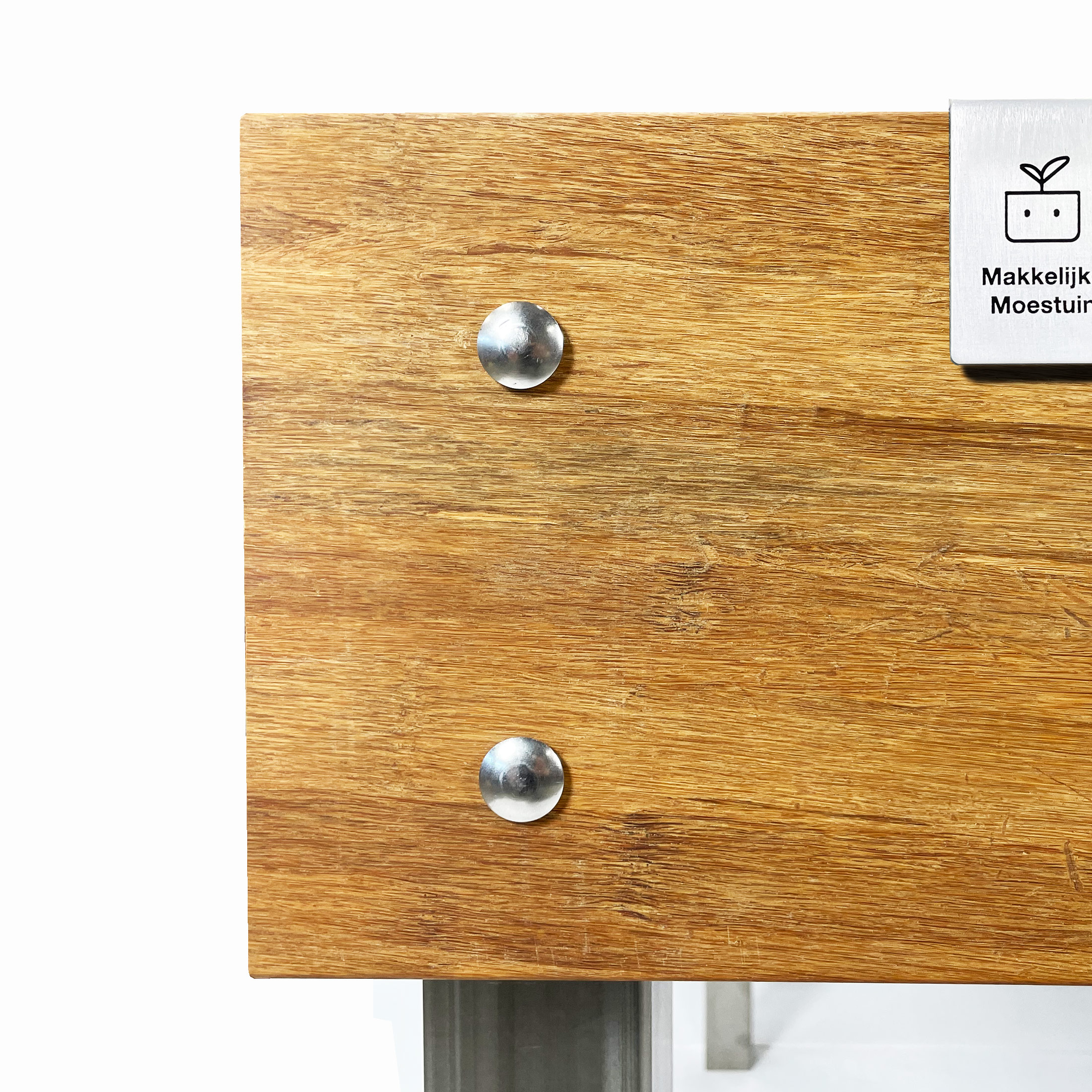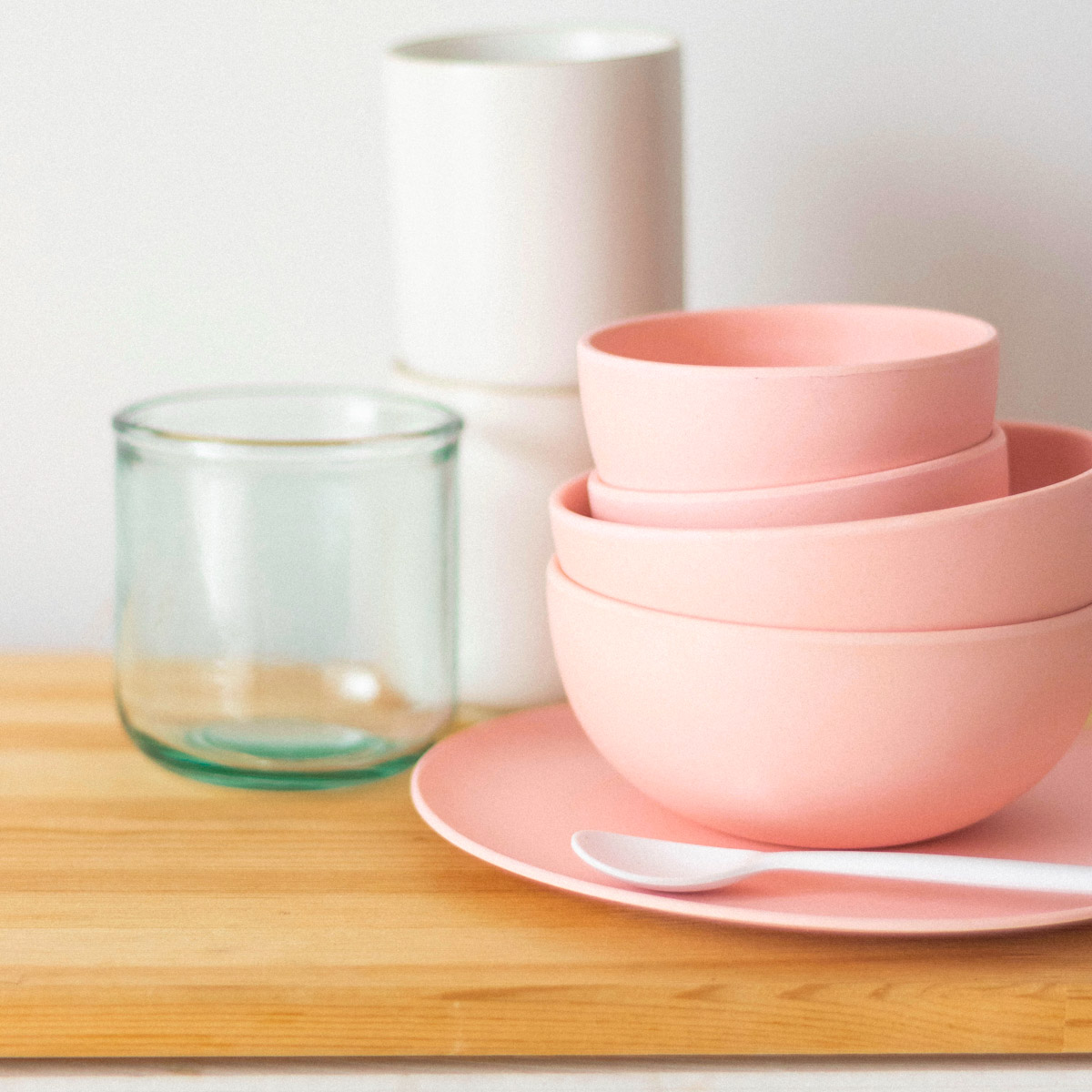Why did we make a garden box out of bamboo?

Why did we choose these bamboo planks?
- super beautiful and will last for 20 years at least
- are 10x better for the environment than the wood we can get now

What is bamboo?
This bamboo species grows ridiculously fast - sometimes up to 1 meter a day in spring. They grow super tall and have thick stems that become woody after a few years.
The stems can be harvested after about 5 years, which is 10x faster than trees.
Several stems grow from a single root system. Cutting down some of these (20 to 25%) each year keeps the plants healthy, allowing them to produce new stems each time. Good forest management practices mean lots of new growth.
And a well-managed bamboo forest absorbs up to 5x more nitrogen than a normal forest* and releases 35% more oxygen*. You can see why bamboo has a lot of environmental advantages.

Where does the bamboo come from?

But bamboo contains formaldehyde, right?
That's why you should never use those kinds of products for hot food or drinks, and - according to many sources* - preferably not at all. Many people think that they're buying something eco-friendly because they saw the word bamboo. But the material doesn't seem to be very biodegradable either.

Formaldehyde is a colorless gas that has a strong smell. It's a naturally occurring gas that can even be found in your body.
Formaldehyde is released into the air when you do things like burn incense, candles, firewood, and cook. It's also found in exhaust fumes and cigarette smoke. Sometimes it's used in products like laminate, insulation materials, and melamine plastic. Melamine is used a lot in kitchenware and Tupperware.
A little formaldehyde isn't so bad, but too much can be a health hazard. That's why there are strict regulations for the use of formaldehyde in products.
Source: waarzitwatin.nl
Our bamboo planks are safe
The planks meet the strictest EU standard available (EN 717 / E1). On top of that, the tests indicate that no volatile gases - like formaldehyde - were released into the air.
Other results: the plank material is non-flammable, non-toxic, super strong, and indestructible. For those in the know: the density is 107 N/mm2. Compare that with oak (34 N/mm2) and hardwood (39 N/mm2).
So, are there any disadvantages?
When you hold the planks in your hands you get a feel for the quality: it's super heavy, beautiful to look at, and rock solid.
So you pay more than for a wooden garden box, but because it lasts so long, you'll make back that investment.
And be honest: have you ever seen a nicer-looking garden box?
Why don't you use wood?
And in recent years there's been a major wood shortage. So massive logging is taking place - even in tropical rainforests - and the quality of wood is declining fast. And the price keeps going up.
To give you an idea: we used to be able to find excellent Douglas Fir wood, sustainably harvested and of excellent quality. But if we were to make a garden box with the same quality of Douglas Fir today - if we could find it at all - the price would be the same or even more expensive.
Trees take a lot longer to grow to a size that can be harvested. So the forests also don't regenerate as fast. And it takes about 10 years for a tree to absorb a significant amount of CO2.
But the MM-Hero is also super eco-friendly too, right?
By buying a Hero you save the world from a lot of plastic waste. Moreover, the planks really last forever: much longer than those made of bamboo.
Personally, we like the gray color of the Heroes, but many people like the look of wood better. The bamboo planks are even more beautiful, also because they stay that way. Wooden planks quickly turn a grayish color.
What we find super cool is that the Hero addresses the plastic problem, and MM-bamboo the nitrogen one.
Plus: for the garden tables, we can use the same legs and bottom. So everything fits together beautifully.

How do you maintain the bamboo?
The advantage of bamboo is that you can pretty much get the original color back by oiling it. That's not an option for wood.
If you want to prevent discoloration from the start, you can treat the planks with a water-based oil made for outdoor wood, like Woca.